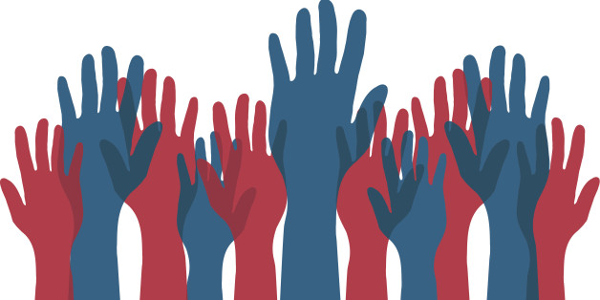Democracy is a form of government where the majority have their way and the minority have their say. It is the most preferred form of democracy across the world where people are free to express their will even if it is not the will of the majority. We look at some of the advantages and disadvantages of democracy as a form of government.
Pros:
1. Nationalism: Democracy breeds nationalism. It creates an environment her the people are free to coexist with each other and express themselves in a manner that does not infringe on the rights of others.
2. Better and equal opportunities: Democracy guarantees that everyone within the confines of the country will be treated equally and will still be free to express their say. This also means that the opportunities will be better and more defined
3. Freedom of life: Democracy guarantees certain freedoms that are not always available in other forms of government. The freedom to choose your leaders and to express oneself the way that you want equals freedom of life.
4. People’s Choice: Democracy ensures that the people who are elected into office are elected by the people and are the people’s choice for power. As such, it is easier for the people to practice people during patriotism knowing that the leaders are their choice.
5. Change of power: Democracy allows people to be governed by different people at various periods in time. This means that after a certain period of time, there will be a change of power which shall be handed on to someone else.
6. Equal and fair justice: Democracy guarantees that everyone will be accorded equal and fair access to justice at any given time. There will be no discrimination as far as access to justice is concerned.
7. People participation: Democracy allows for people participation. It opens up access to information and how people are governed. It ensures that people are free to determine how they are ruled and how they are governed.
8. Term limits: Democracy provides for term limits for all power holders. This allows people to be ruled by different people during certain periods of time.
9. Obligation towards citizens: There is a sense of obligation towards the citizenry by the political powers because they have a term limit that limits their stay in power. This ensures accountability to the people.
10. Protection of rights: In a democracy, the rights of the citizens are protected by the state and every citizen is free to live and work whenever they want as long as they do not interfere with other people’s rights.
Cons:
1. Corruption: Democracy is sometimes associated with mega corruption scandals. This is because in most instances, the people who come to power in a democratic manner know they have a limited amount of time in power and therefore they want to enrich themselves before the time lapses.
2. No protection for the common man: The common man is sometimes left for their own machinations as the political elite conspire to eat while they are in power.
3. Divide and rule: In some cases, those in power want to implement the divide and rule kind of arrangement because they want to have total control of power.
4. Unfair businesses: Democracy opens up the economy for people to do business as they wish. This may turn out to be a playing ground for people who want to conduct unscrupulous businesses.
5. Addiction for power: Democracy may result in an addiction for power that makes people refuse to let go of power.
6. Dynastic politics: Democracy also encourages dynastic politics where dynasties emerge as the only people who can rule.
7. Media misuse: Democracy may sometimes take advantage of the media through corrupt deals and encourage the misuse of information as it reaches the people.
8. Lack of justice: In some cases, the minority in a democracy may feel left out of a decision because their wish has not been implemented and this causes injustice in this form of government.
9. It is time consuming: Democracy can be time consuming especially in cases where the people do not seem to agree on a particular issue.
10. It is expensive: It is quite costly to try and get everyone on board when people do not seem to agree on an issue.


